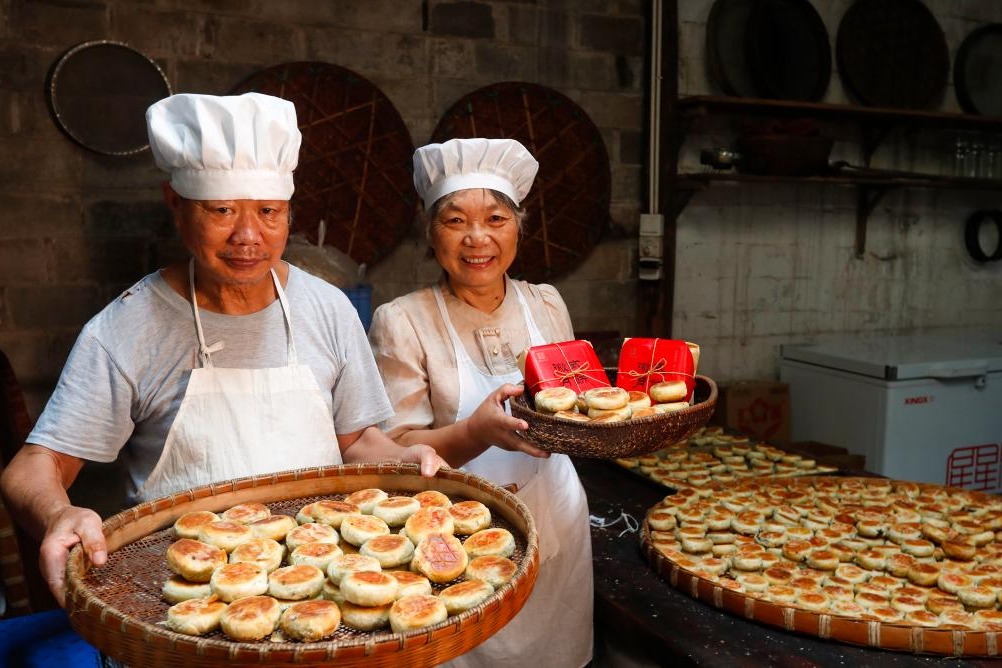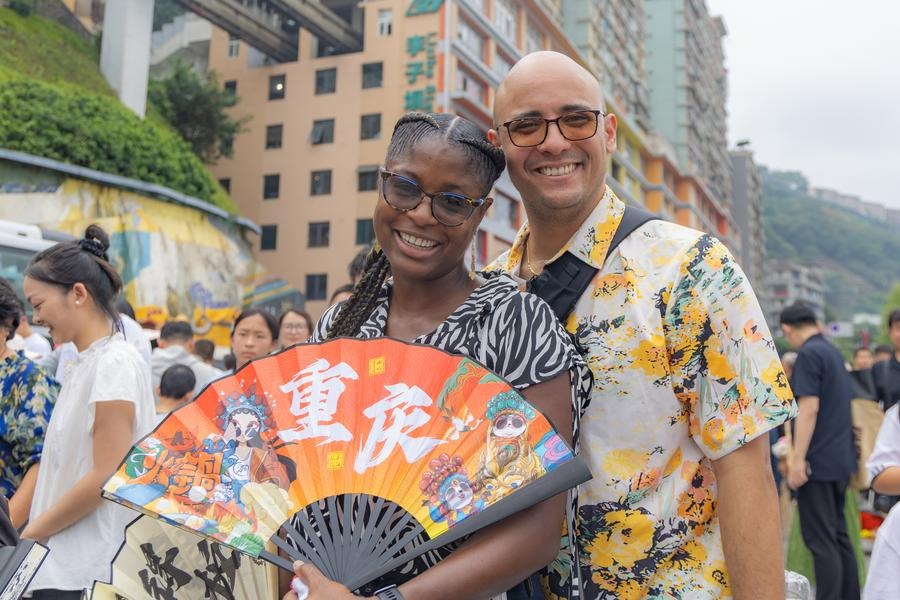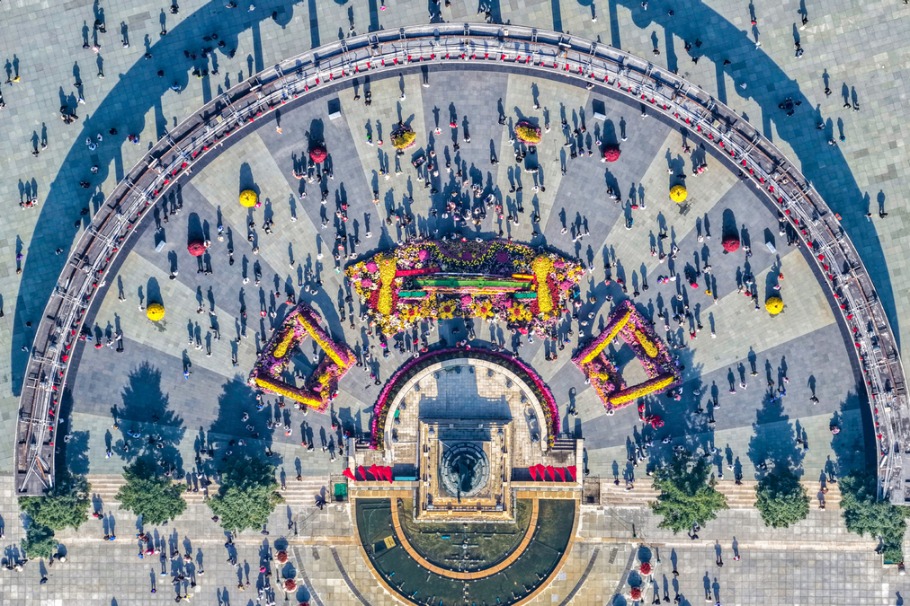Creative university acceptance letters spur social media frenzy

Chinese universities are using creative methods to send prospective students admission letters, and nothing seems to be off the table. Higher education institutions are transforming the traditional item into everything from edible delicacies to Antarctic keepsakes, sparking an online frenzy and even a black market for the novel items.
The 2025 university admission season has ignited social media as students nationwide showcase their creatively packaged acceptance letters. A student's post on Douyin, China's version of TikTok, claims Jilin Agricultural University sent them an edible admission letter made from new mushroom paper developed by its fungi research team led by Li Yu, an academician of the Chinese Academy of Engineering.
The student used edible parts of the letter as an ingredient to make the famous dish "chicken stewed with mushrooms", a video that has since circulated on social media.
University officials said recently that while the main body of the letter is conventional, it does include a detachable sheet made of mushroom mycelium developed by the university's own fungi science team.
This special "mushroom paper", crafted by students at the university's College of Mycology, is made from mushroom fibers without using traditional polluting processes such as bleaching. The paper is touted as low-carbon, eco-friendly and unique.
The university developed the special admission letter to encourage new students to "be like mushrooms: emerge bravely from the earth with composure as your cap and confidence as your stem," it said.
Meanwhile, the Ocean University of China in Qingdao, Shandong province, captured imaginations with what netizens dubbed the "most romantic" admission letter. Its admission package includes a pendant containing seawater retrieved directly from Antarctica by the university's research team.
Each droplet-shaped pendant bears the university's English abbreviation "OUC" and an authentication certificate. The package also includes tea from Lyuchun county, a university-supported region in Yunnan province.
The university said the gesture was made with the hope that every new student will draw wisdom from water's resilience, measure the world by the ocean's vastness and become graduates who can contribute to building China into a strong maritime nation. However, the unique move has fueled a secondary market, with the Antarctic seawater pendants or entire packages appearing on resale platforms for prices ranging from 1,800 to 5,000 yuan ($250-$696). Some buyers offered 300 to 3,000 yuan, according to Xiaoxiang Morning News, a news outlet in Hunan province.
The university confirmed the pendants are officially distributed only to admitted students and warned against potential counterfeits, advising against high-priced purchases.
Perhaps the most unexpectedly sturdy admission letter was from the Beijing University of Chemical Technology. A recent video posted on Douyin showed its carbon fiber admission letter — a mere 0.2 mm thick and developed by the university's advanced composite materials center — effortlessly slicing through a watermelon without damage.
This high-performance composite, the university noted, is already widely used in rockets, satellites, space stations, aircraft and large vessels. It began sending letters made with the materials last year.
Students have already let their imaginations run wild to test its durability, with videos showing the admission letter remaining completely unscathed despite being crumpled, bent, and even splashed with hot water.
Technological marvels also took center stage. The Harbin Institute of Technology in Heilongjiang province presented its "Dream" gift box themed around space exploration.
The admission letter itself is engraved on material identical to the heat shield used on China's Mengzhou manned spacecraft, the Tianwen 2 probe and return capsules. Developed by the university's research team in collaboration with a satellite manufacturer in Beijing, this ultra-high-temperature lightweight ablative composite material embodies the cutting-edge aerospace technology of the university.
The Southern University of Science and Technology in Shenzhen, Guangdong province, delivered literal excitement: a "mysterious black box" bearing a torch image. When a special region at the lower part of the box is ignited, the upper part reveals the university motto "Virtue, Truth, Advance". Scanning the enclosed torch with a phone produces a blazing augmented reality effect.
While the creative admission letters have been met with praise from netizens who view this as demonstrations of warmth, experts argue these innovations risk "prioritizing form over substance" or being "superficial gimmicks".
Chu Zhaohui, a researcher at the China National Academy of Educational Sciences, is among the experts who share the view that universities have limited resources, requiring more rational allocation to maximize utilization. According to experts, whether the value truly justifies the cost when excessive time and resources are invested in designing admission letters remains questionable.
- Red alert as Typhoon Matmo makes landfall in South China
- New reception hall aims to transform Guangzhou into international trade hub
- Typhoon Matmo to make landfall on Sunday
- Mid-Autumn Festival event promotes cross-Strait harmony in Fuzhou
- Vibrant China during holiday: 'China Travel' thrives
- China's National Day box office surpasses 1.1-billion-yuan mark





































